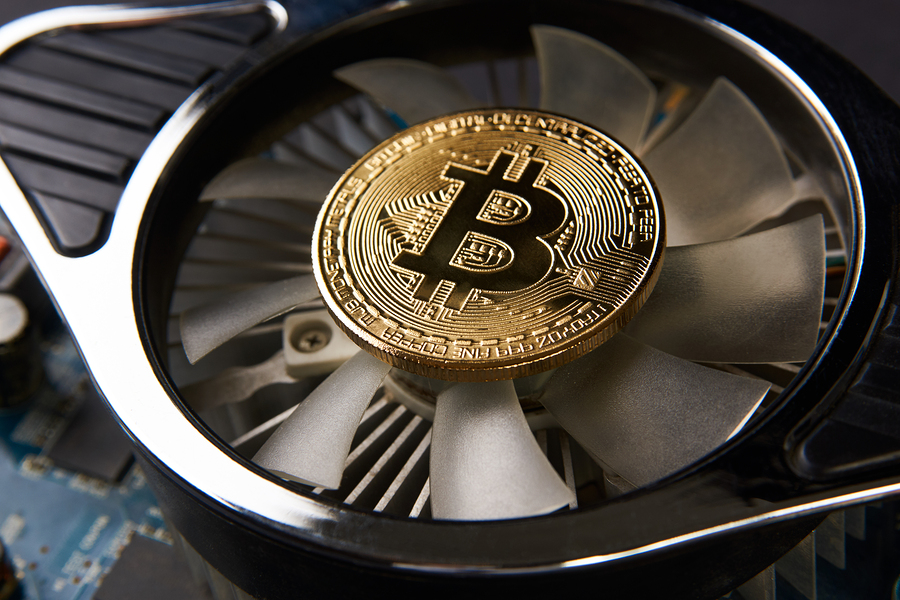Bitcoin Mining Centralization Raises Concerns in Crypto Community
25.08.2024 20:00 2 min. read Alexander Stefanov
Worries are growing in the cryptocurrency world about the centralization of Bitcoin mining, which could undermine the foundational decentralized ethos of the cryptocurrency.
Recent figures from BTC.com show that two dominant mining pools, Foundry USA and AntPool, now control about 57% of Bitcoin’s total network computing power. These mining pools allow individual miners to pool their resources to increase their chances of earning Bitcoin, with earnings distributed according to each miner’s contribution after fees are taken out.
The dominance of Foundry and AntPool has raised concerns. Foundry, managed by Digital Currency Group, aligns with US interests, while AntPool is operated by China’s Bitmain Technologies, reflecting Chinese influence.
The fact that these two pools hold such a large share of the network’s hashrate could lead to geopolitical tensions and impact the overall security and fairness of the Bitcoin network.
The centralization of mining power is a significant issue. Bitcoin developer Luke Dashjr has warned that if a single mining pool gains control of more than half of the network’s computing power, it could perform a 51% attack, threatening the network’s integrity. Although no pool has reached this level of control, the existing concentration has already resulted in some cases of transaction censorship.
In a related incident, F2Pool was criticized in 2023 for censoring transactions to adhere to US economic sanctions but later reversed its policy following community criticism.
-
1
Bitcoin ETF Inflows Hit $2.2B as Market Calms After Ceasefire
25.06.2025 17:00 1 min. read -
2
Bitcoin ETF Inflows Explode Past $3.9B as BlackRock’s IBIT Leads the Charge
26.06.2025 18:08 1 min. read -
3
Bitcoin Surpasses Alphabet (Google) to Become 6th Most Valuable Asset Globally
27.06.2025 14:39 2 min. read -
4
Is Bitcoin a Missed Opportunity? This Billionaire Begins to Wonder
27.06.2025 12:00 1 min. read -
5
Bitcoin Price Prediction for the End of 2025 From Standard Chartered
02.07.2025 18:24 1 min. read
Bitcoin Price Prediction: As BTC Hits New All-Time High Is $200K In Sight?
Bitcoin (BTC) has hit a new all-time high today at $123,090 as per data from CoinMarketCap and trading volumes have exploded as a result. Nearly $180 billion worth of Bitcoin has exchanged hands in the past 24 hours. This represents a 284% increase during this period. This volume accounts for 7.5% of BTC’s circulating supply. […]
Bitcoin Price Prediction From Bernstein After the Recent All-Time High
As Bitcoin surged to another record high above $123,000 on Monday, analysts at Bernstein offered a bullish long-term outlook for the digital asset, forecasting a transformative period ahead for the entire crypto sector.
Strategy Buys 4,225 more Bitcoin, Pushing Holdings to 601,550 BTC
Bitcoin treasury firm Strategy—formerly known as MicroStrategy—has expanded its already-massive BTC holdings with a fresh $472.5 million acquisition.
Robert Kiyosaki Reacts to Bitcoin’s Surge Past $120K: “I’m Buying One More”
Famed author of Rich Dad Poor Dad, Robert Kiyosaki, has once again thrown his support behind Bitcoin following its recent surge above $120,000, calling it a win for those who already hold the asset—and a wake-up call for those who don’t.
-
1
Bitcoin ETF Inflows Hit $2.2B as Market Calms After Ceasefire
25.06.2025 17:00 1 min. read -
2
Bitcoin ETF Inflows Explode Past $3.9B as BlackRock’s IBIT Leads the Charge
26.06.2025 18:08 1 min. read -
3
Bitcoin Surpasses Alphabet (Google) to Become 6th Most Valuable Asset Globally
27.06.2025 14:39 2 min. read -
4
Is Bitcoin a Missed Opportunity? This Billionaire Begins to Wonder
27.06.2025 12:00 1 min. read -
5
Bitcoin Price Prediction for the End of 2025 From Standard Chartered
02.07.2025 18:24 1 min. read


